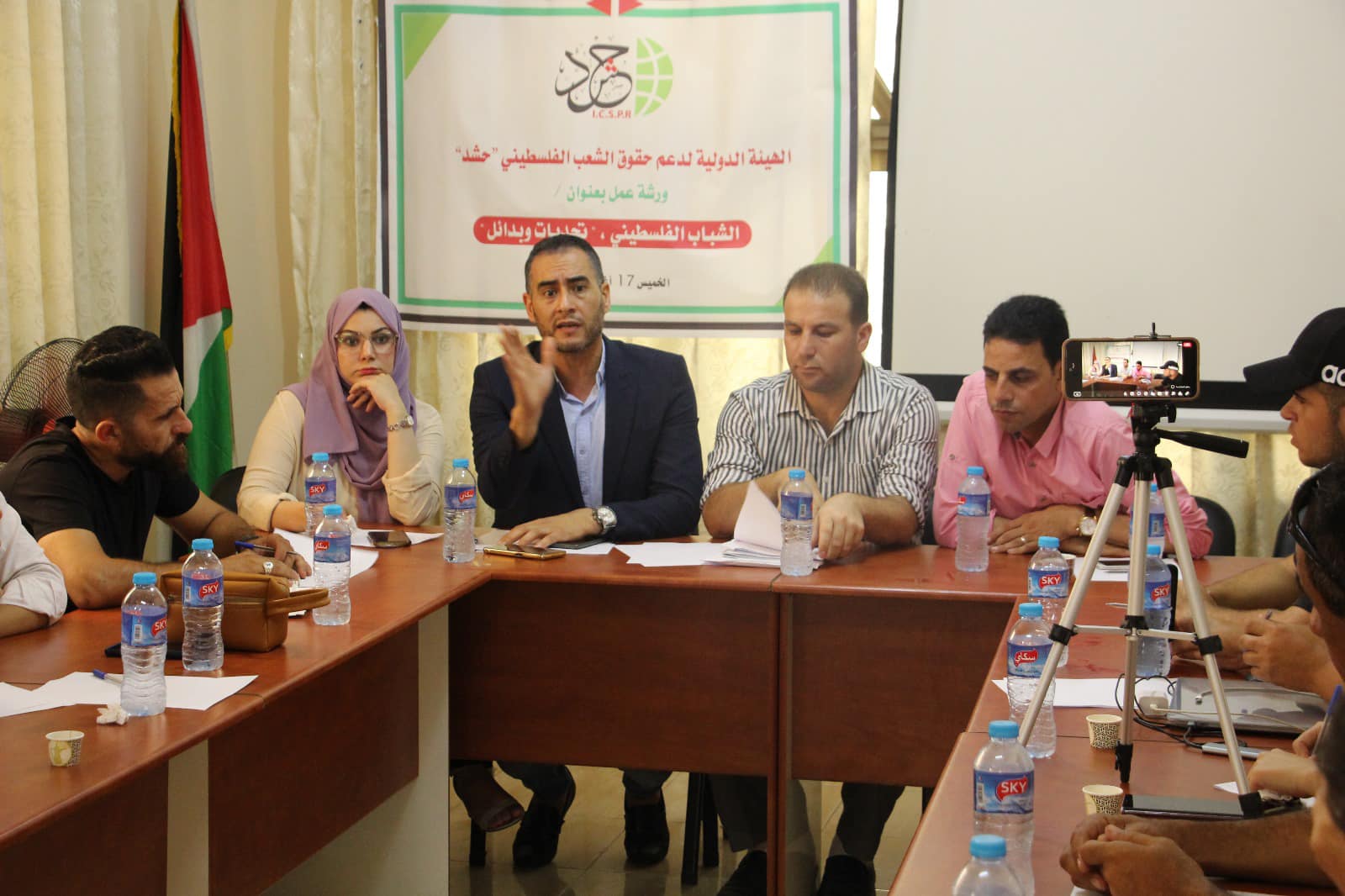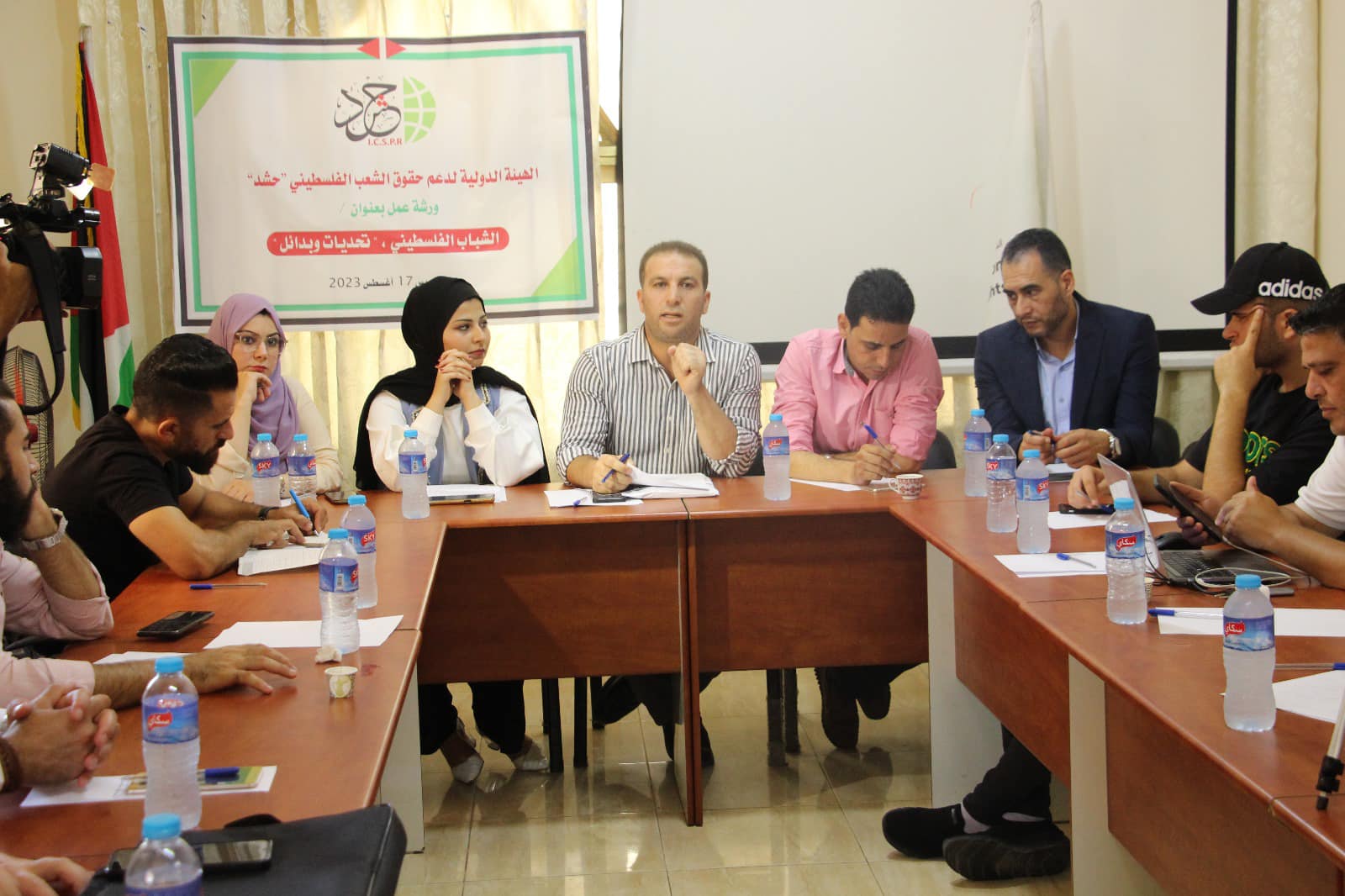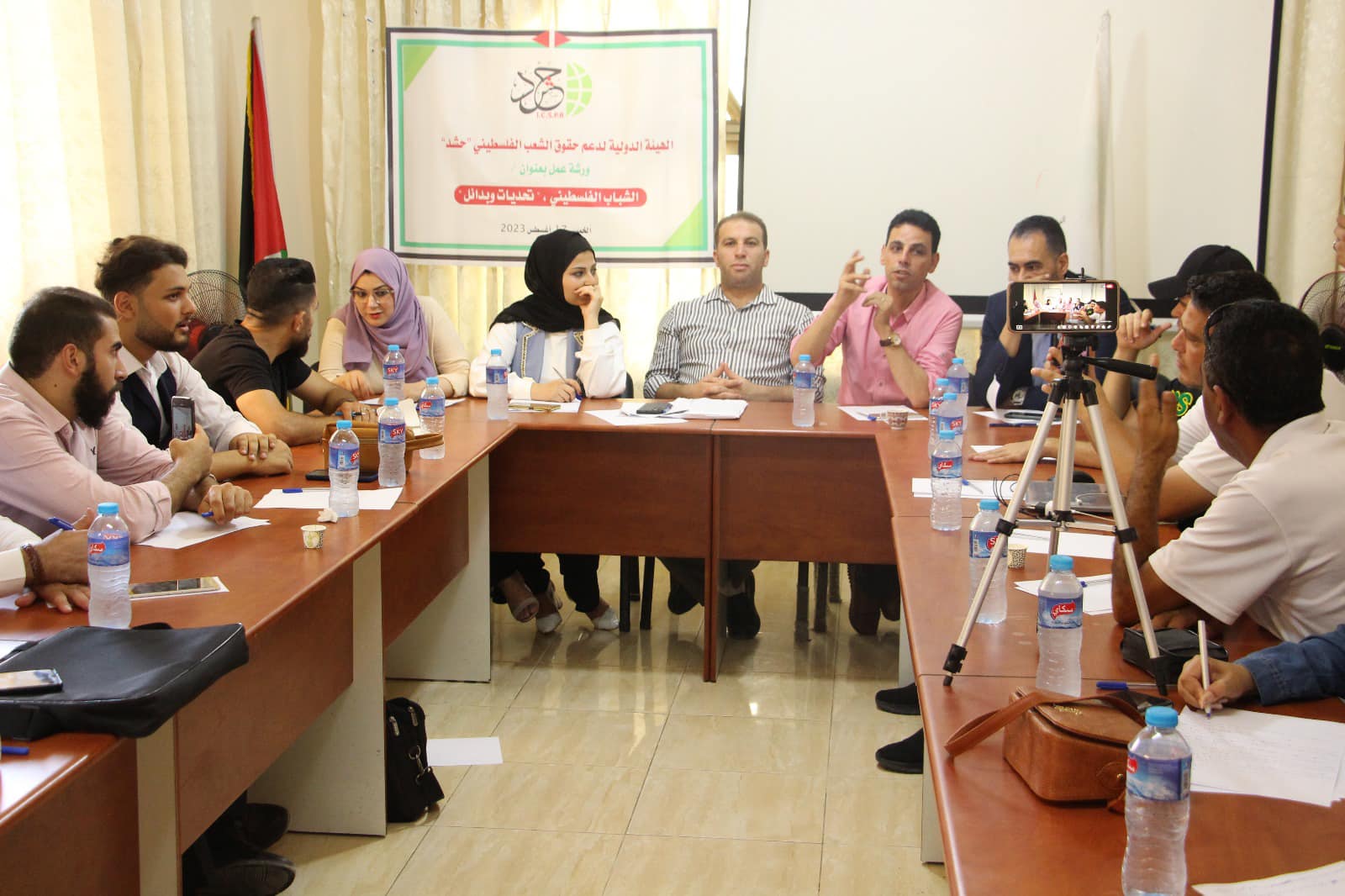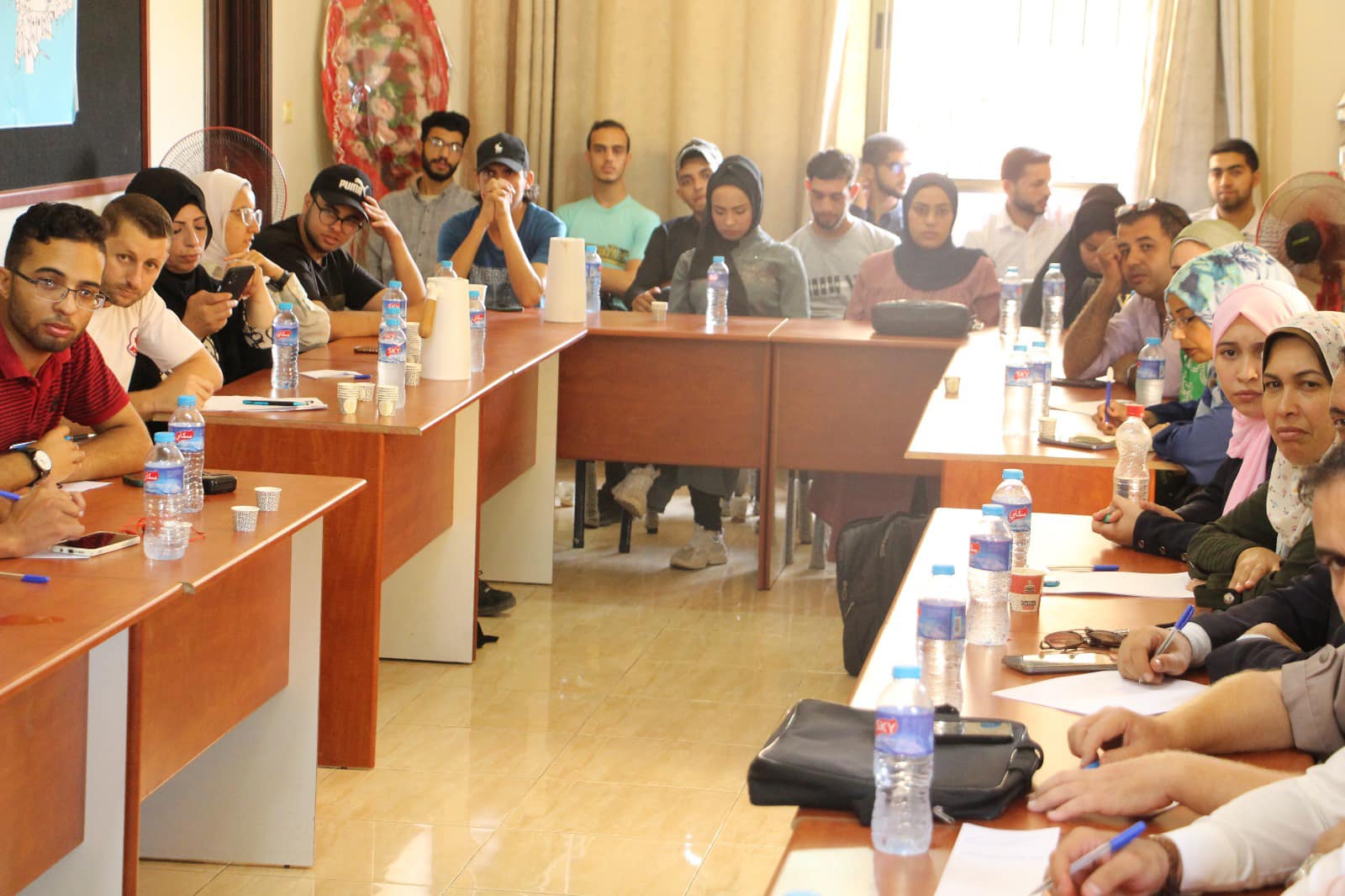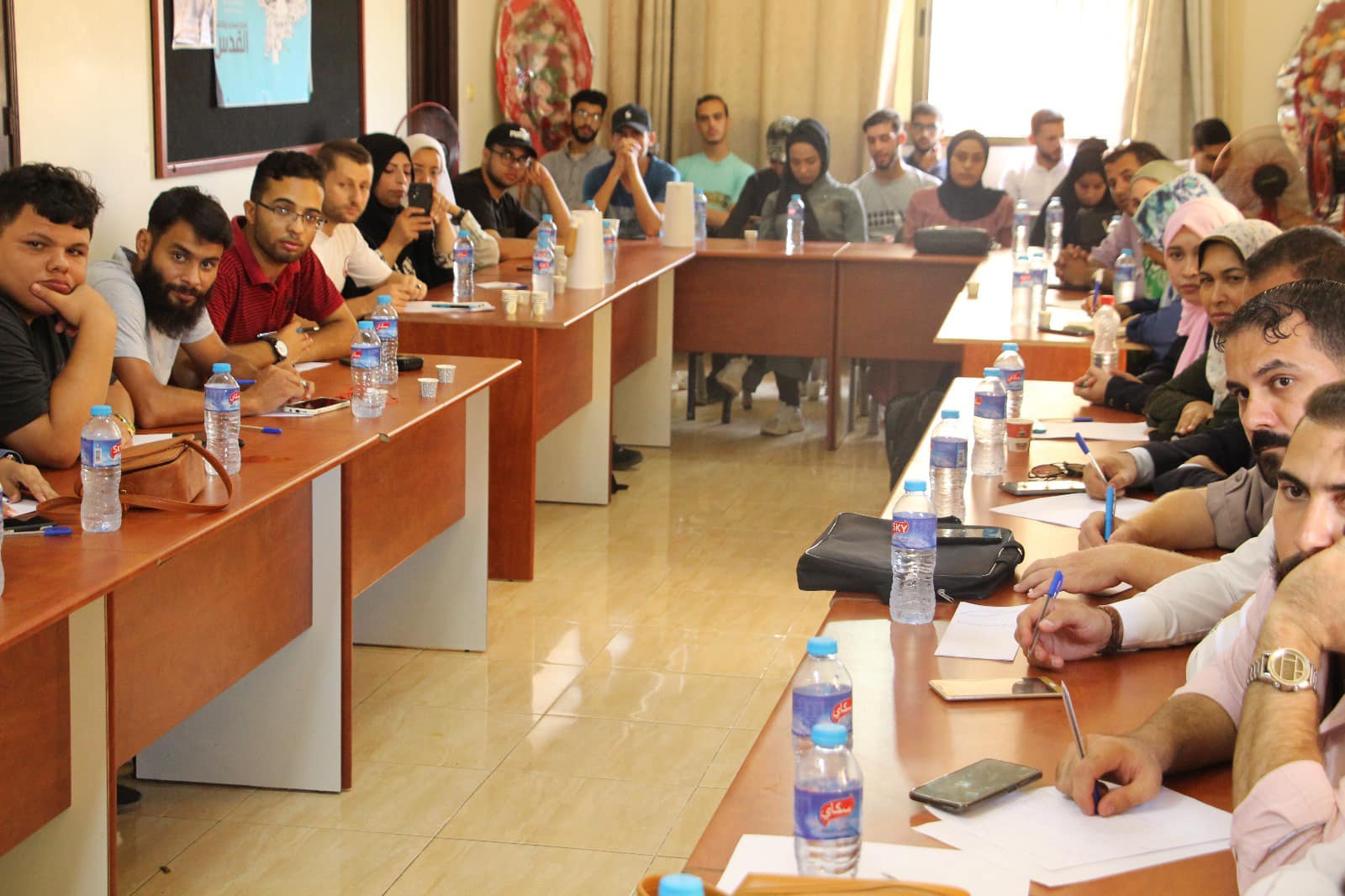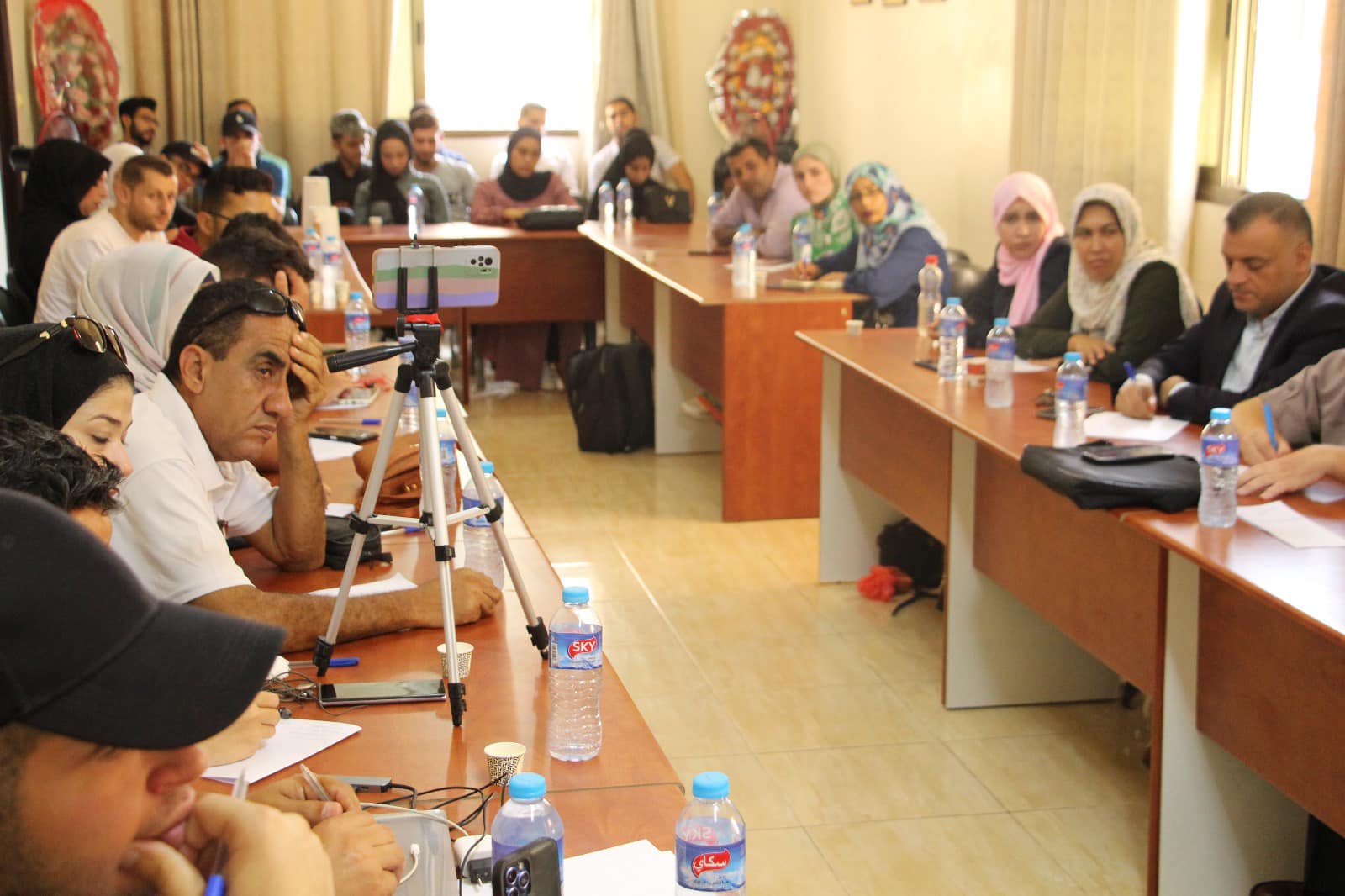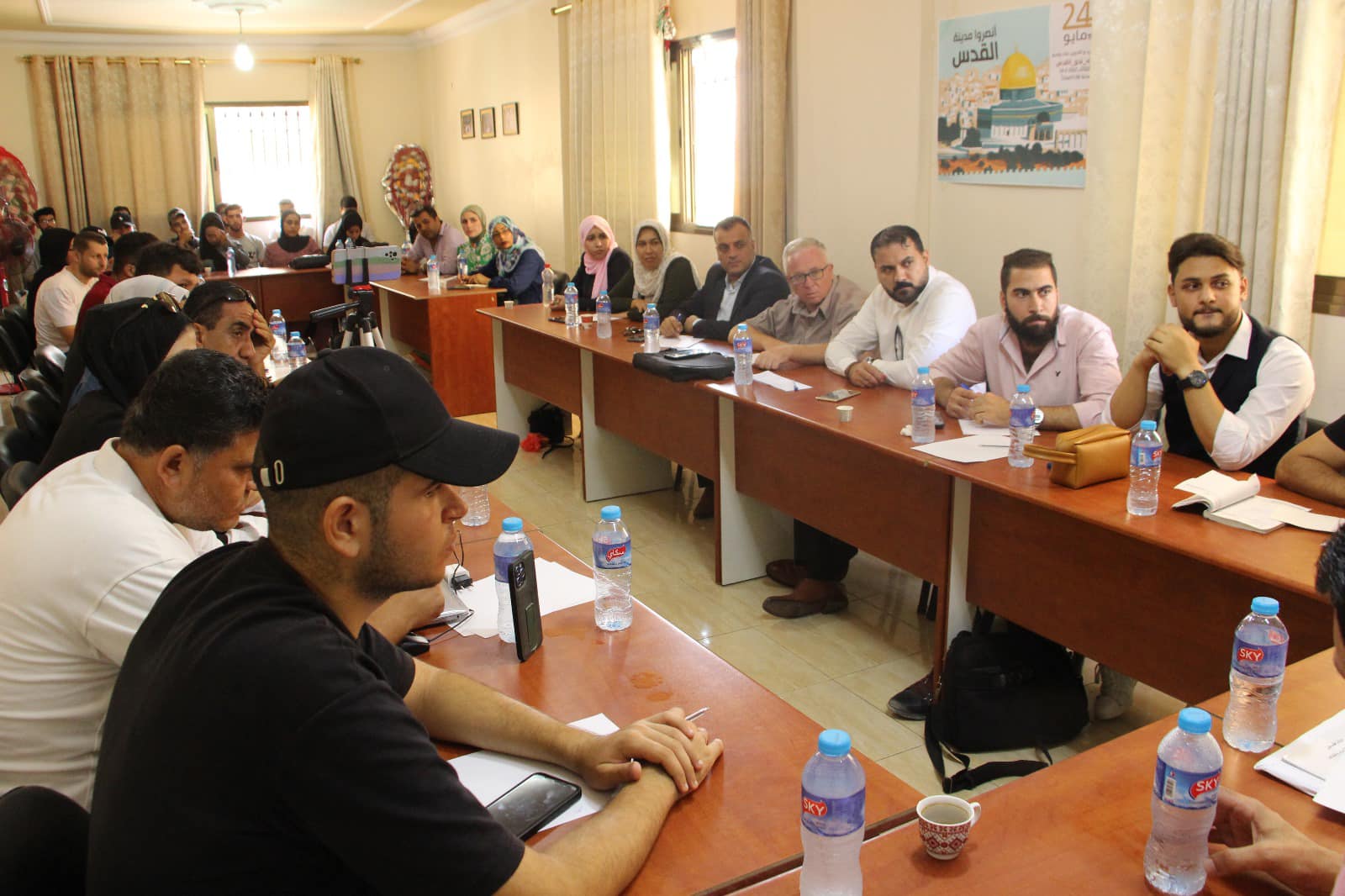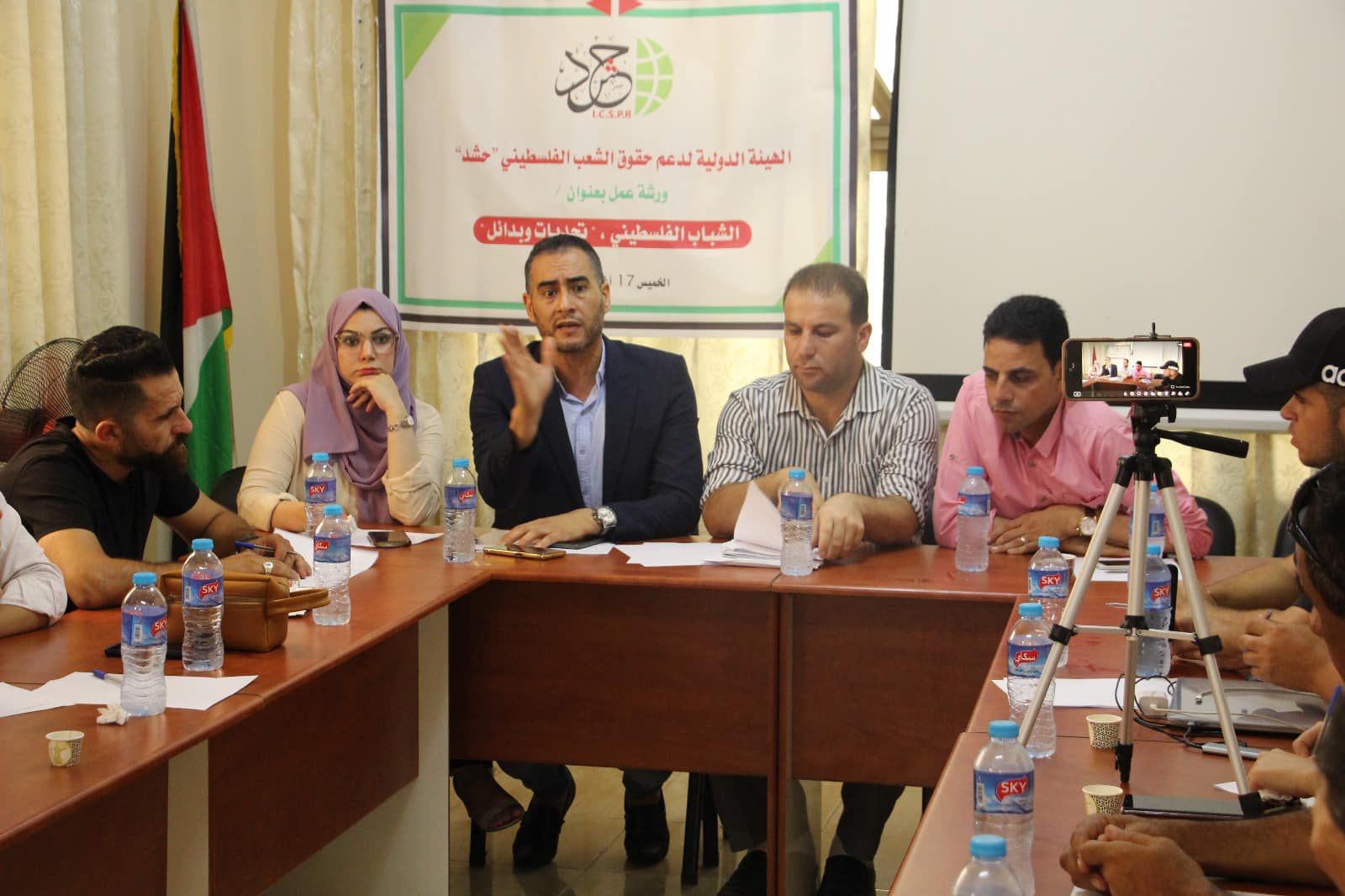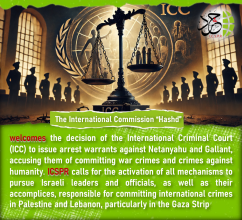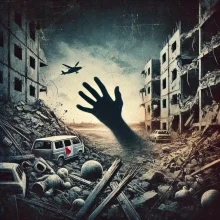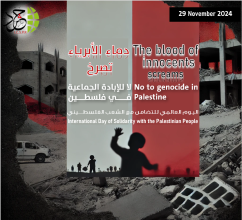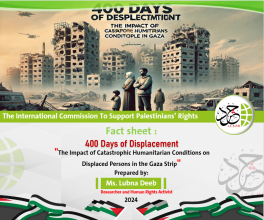
During a workshop organized by (Hashd), young activists highlight the need to collaborate as a way to confront the issues that Palestinian youth suffer.
Reference number: 74/2023
Date: August 17, 2023
Native Language: Arabic
Press release
=During a workshop organized by (Hashd)
Youth activists highlight the need to collaborate as a way to confront the issues that Palestinian youth suffer.
Youth activists, specialists, and academics called for the development of a national plan to improve the reality of Palestinian youth in light of the issues they confront at all levels, particularly by assuring their active involvement in political, economic, and social decision-making.
They emphasized the importance of decisive international action to end the occupation’s crimes and relieve the illegal blockade of the Gaza Strip, holding all parties accountable for developing young people’s competencies and skills to be active members of society. Youth programs include the need for a national fund to help youth, changing educational patterns and a concentration on vocational and technical education, and the requirement of a continuous youth movement to increase youth engagement.
This was stated during a workshop organized today, Thursday, by The International Commission to Support Palestinian Rights “Hashd” titled:
“Palestinian Youth Challenges and Solutions.”
In her opening statement, lawyer Reem Mansour pointed out that youth are the primary foundations in building society, and that supporting them necessitates increased efforts to develop their skills and capabilities, noting that the siege and occupation attacks have had a significant impact on Palestinians in general, and the youth group in particular, and have resulted in unsustainable conditions. A difficult and tragic economy, in addition to the continuation of the Palestinian division, cast a heavy shadow over all economic sectors and all segments of society, particularly youth, including high youth unemployment rates, widening youth poverty, and an increasing desire to emigrate.
“Each ministry targets a specific category, but the youth category overlaps with the number of ministries,” Khalil Matar, Director General of the General Authority for Youth and Culture, remarked. Culture has always been about establishing a lawful environment and empowering young people in numerous sectors”.
And he stated that the authority has various duties, the most important of which is to seek approval of rules, regulations, and legislation that benefit youngsters in all disciplines while analyzing the authority’s most significant achievements over the years.
Matar mentioned that the Commission’s policy was to empower youth in three major areas: the political field through the election of local youth councils for municipalities, the economic field through targeted training, and the political field through submitting proposals for holding youth parliament elections. Creating an environment for self-employment, remote labor, and small initiatives, as well as guiding youth institutions and the social sector through loans, marriage grants, housing, and the submission of a plan for a youth city.
He said that there is integration and coordination of efforts to assist Palestinian youth between the Ministries of Labour, Youth, Culture, and Economy, Development, and Labor to design programs that serve this sector.
“We salute the Palestinian youth who believe in the inevitability of victory over the enemy and the division that was born to increase the suffering of Palestinian youth,” added Muhammad al-Ghoul, a member of the Popular Front’s Central Committee.
He demonstrated that Palestinian youth face many challenges, most notably the occupation and blockade of the Gaza Strip, Palestinian division, the absence of democracy, the failure to hold elections, the exacerbation of crises, the lack of a comprehensive vision and strategy for Palestinian youth, and the lack of a developmental vision rather than a relief vision to enhance youth steadfastness in the face of challenges, with a case from the wanderings produced by nepotism, mediation, corruption, and division, in addition to the decline in cultural awareness.
According to Al-Ghoul, the world relies heavily on youth because they are the main pillar of society and potential energy, as well as the main force and tool of change, and “we must all work to provide all the necessary needs for them, and this responsibility lies with everyone.”
He made clear the need for action to take place on two fronts. The first is the youth themselves, with all of their ongoing movements to obtain their rights in all fields, particularly in decision-making positions, and for them to be good models for breakthroughs to occur, whether at the official level, parties, or civil society and the second is the official one. The Palestinian regime, through all of its institutions, must devise measures to ensure young involvement and access to decision-making positions.
Wael Balousha, Director of the AMAN Coalition in Gaza, for his part, explained the youth classifications according to the classification agency, as the United Nations classifies this group as 18-24 years, while Palestinian law classifies it as 18-29 years, and the League of Arab States classifies it as 18-40 years. It is important to note that the variation in categories causes uncertainty at the level of rights and obligations.
on the vision of civil society organizations, Balousha emphasized that in the absence of an official vision, they cannot set a comprehensive strategic vision, noting that the value of the Palestinian Authority’s general budget, or the authority in Gaza, reflects the extent of interest in favor of youth in terms of health, education, and social services.
He underscored that if the national policy for pioneers and youth was implemented, the reality of youth would be excellent and more organized than it is now, explaining that it is one of the projects killed by the Palestinian division, as it is the result of the efforts of an elite group of pioneers of youth work and the National Committee for Youth and Vanguards in cooperation with the Steering Committee for Youth, As part of the efforts of the Ministry of Youth and Sports.
Lawyer Rana Hudaib, Director of the Commission’s Legal Department, spoke about the realities of Palestinian youth, the violations they experience, and the most significant obstacles they confront, which include political, economic, and social issues.
She emphasized the importance of increasing Palestinian youth political participation, including them in policymaking, decision-making, and activity planning, as well as supporting individual and collective youth projects, rehabilitating unions, clubs, and cultural institutions, lowering taxes, ceasing collection policy, hastening the completion of Palestinian reconciliation, and ending division.
She finished her speech by sending a message to all the youth, and in the voice of the youth, to all political groups and factions, the most prominent of which is the Palestinian Authority.
Finished.
The International Commission to Support Palestinian Rights (Hashd).


